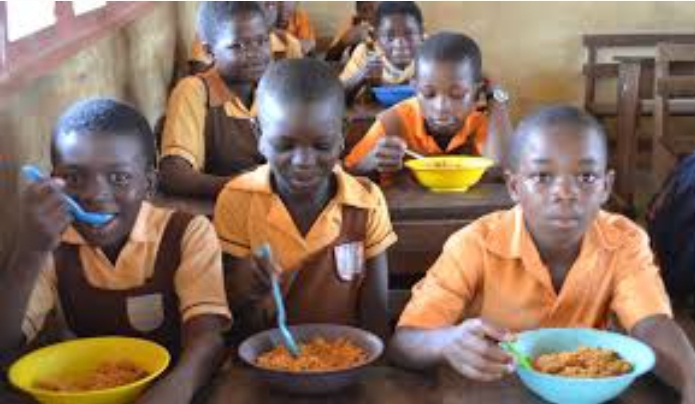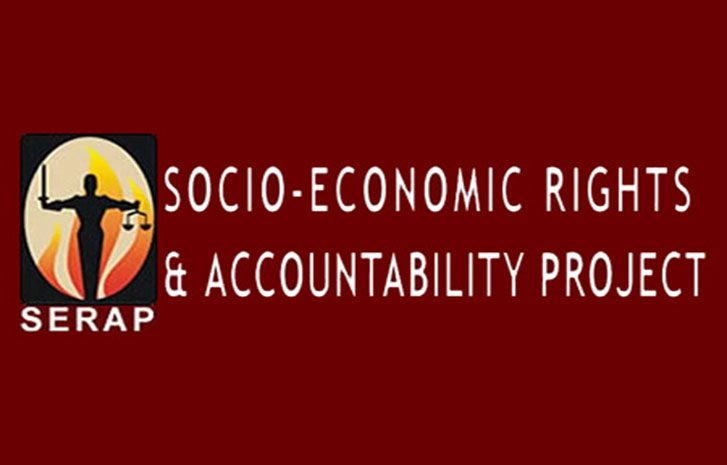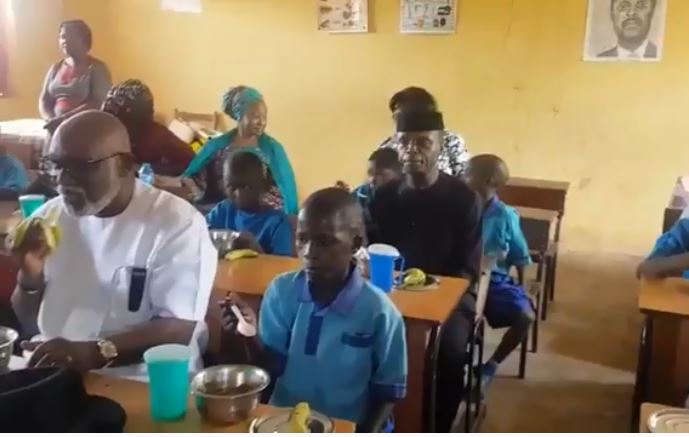Some community leaders in Enugu State have raised concern over the implementation of the National Home Grown School Feeding Programme (NHGSFP) in the state.
The stakeholders expressed their dissatisfaction during the Project Tracking Reports of some Federal Government intervention programmes across the three senatorial zones of the state.
NHGSFP is a government led N70 per day school feeding programme, aimed to improve the health and educational outcomes of public primary school pupils.
The programme uses farm produce locally grown by smallholder farmers to provide children nutritious mid-day meals on every school day.
However, reports by project tracking groups sponsored by Divine Era Development and Social Rights Initiatives (DEDSRI) in four selected local government areas of the state faulted the progress of the programme.
The pilot local government areas are Nkanu West, Udi, Igboeze North and Igboeze South.
The Chairman of the Project Tracking Committee in Nkanu West Local Government Area, Mr Nick Nnamchi, said that the implementation of the programme in the area lacked adequate supervision.
Nnamchi said that the committee found out that many of the primary schools in the area were excluded from the programme.
“Salaries of serving vendors are not paid regularly and whenever this happens, they do not cook for the pupils for that period,” he said.
One of the food vendors in the area who pleaded anonymity, said that their contract sum had been reduced which in turn had led to irregularity in the supply of meals to the school children.
The source said that they were now paid between N80, 000 and N90, 000 per month compared to the initial N120, 000 monthly payment.
In Igboeze South Local Government Area, the Project Tracking Committee Chairman, Mr James Okeanya, said that out of the 44 primary schools in the area, only 33 were benefitting from the programme.
Okeanya said that over 70 per cent of the schools benefitting from the programme in the area had problems ranging from poor food quality and irregularity in supply of food to the pupils.
“A teacher in one of the schools told us that the pupils, sometimes, develop diarrhea after eating the food.
“We found out that most of the vendors who are expected to supply food for 20 days in a month end up supplying for 10 days,” Okeanya said.
Also, the Chairman of the Project Tracking Committee in Igboeze North Local Government Area, Mr Titus Onuche, described the implementation of the programme in the area as an ‘embarrassment’.
Onuche said that most of the vendors were not supplying food to the pupils even after getting their payment.
He called on the state government to set up a monitoring team to ensure that funds released by the Federal Government for the programme did not end up in private pockets.
Also, the Education Secretary, Igboeze North Local Government Education Authority (LGEA), Mrs Ukamaka Eze, said that the NHGSFP was reviving primary education in the area.
Eze said that the programme had boosted primary school enrollment in the area.
She however, said that it was sad that out of the 118 primary schools in the area, only less than 100 schools were benefitting from the programme.
Eze said that both education secretaries and head teachers of primary schools in the area were not carried along at the onset which hindered oversight of the programme.
She said that there had been complaints of the poor food quality supplied to the pupils, adding that she had once summoned them to a meeting and urged them to make good use of the money paid to them.
Reacting, the Programme Manager, NHGSFP in the state, Mr Ifeanyi Onah, confirmed that only about 60 to 70 per cent of primary schools in the state had been covered by the programme.
Onah said that some vendors were delisted from the programme because the information they supplied to the Federal Government Budget Office did not tally with their Bank Verification Numbers (BVN).
“These vendors were earlier posted to the schools that are currently not covered. However, we are making efforts to get all schools in the state covered, though it has not been easy,” he said.
He said that the food vendors had issues with payment which have in turn affected the regularity of food supply to the pupils.
Onah appealed to the Federal Government to increase the contract sum, adding that N70 per meal was inadequate.
“The N70 is expected to cover the food, animal protein and fruits and the money is grossly inadequate.
“Enugu State has distinguished itself from others by organising the vendors into corporative societies. They budget together; buy together; cook together and by so doing, we are able to technically combat the inadequacy of N70 per meal,” Onah said.
Meanwhile, the Executive Director of DEDSRI, Ms Ogechukwu Enwelum, said that the project was being implemented in the state under the Strengthening Citizens’ Resistance Against Prevalence of Corruption (SCRAP-C) project.
Enwelum said that the project was implemented in collaboration with ActionAid Nigeria, Upright for Nigeria and Ukaid.
She said that it was aimed at improving service delivery through community actions for social accountability and transparency.



